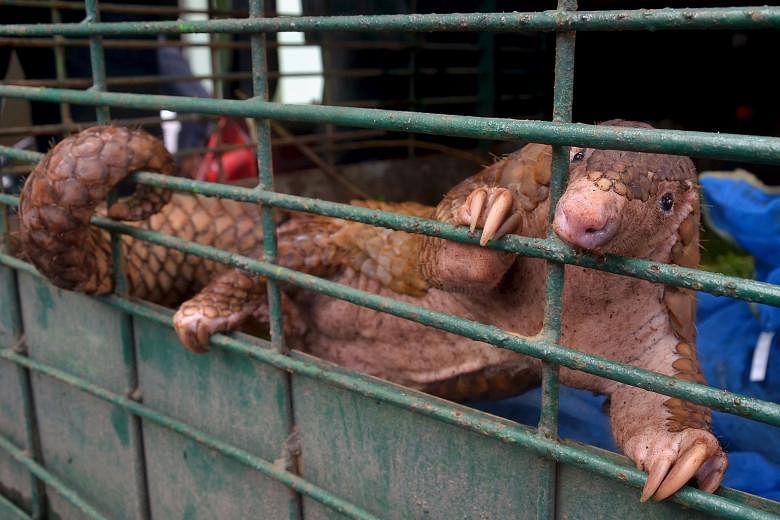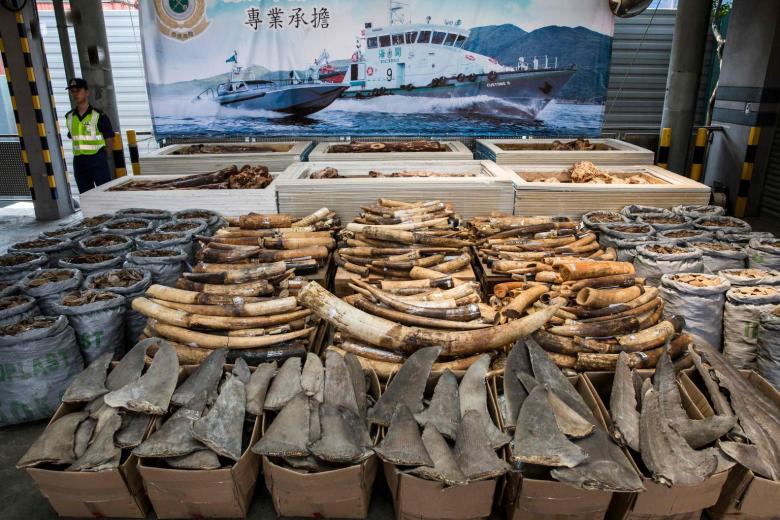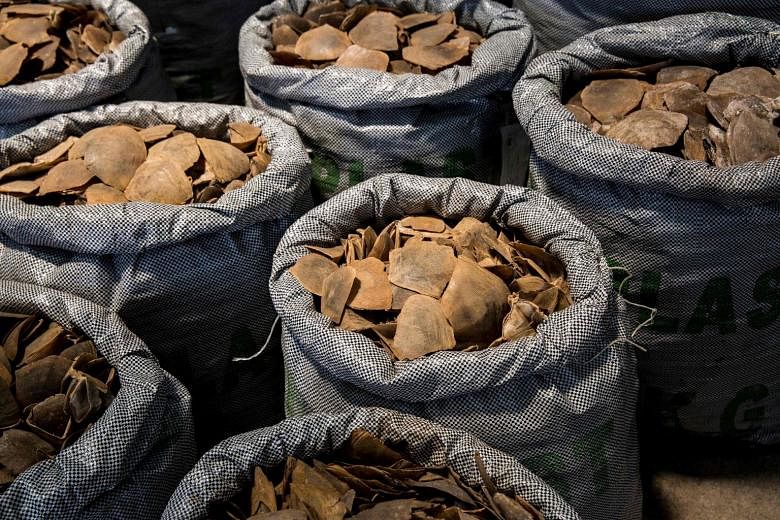WASHINGTON - A high-profile London conference on the illegal wildlife trade begins on Thursday (Oct 11) with experts warning that more action and less talk is required to stem the depletion of species.
As politicians, conservationists and experts on transnational crime gather for the two-day event, hosted by British Secretary of State for Environment Michael Gove, the demand for animals has even reached South America's big cat, the jaguar, which is regularly dismembered and boiled down or has its body parts shipped to China.
In South-east Asia, the tiger has become functionally extinct in Cambodia, Vietnam and Laos within the last decade.
Meanwhile tonnes of pangolin scales - consumed for their supposed but non-existent medical properties in China - from Africa and Asia have been seized by the authorities in Hong Kong and across South-east Asia and India in recent months.
The volume seized represents hundreds of thousands of pangolins. In effect, an entire species is being removed from the food chain.
"Poachers have virtually wiped out the species in many parts of (India)," said Ms Belinda Wright, New Delhi-based founder of the Wildlife Protection Society of India.
Mr Jeremy Douglas, Bangkok-based regional representative of the United Nations Office on Drugs and Crime (UNODC), said: "We have a very short time horizon in front of us for some species.
"The problem is wildlife trafficking is still not prioritised as it should be in the region, and criminal justice systems are slow and not functionally dealing with these crimes. By the time we get convictions in some countries, there may not be any species left.
"Between the poaching numbers and the habitat loss, and compounding effects of climate change, you likely don't have long at all for some species. And with rapid economic growth and the disconnection of habitat, we are rapidly approaching points of no return in South-east Asia."
It is important to raise the profile of issues such as the transnational nature of wildlife crime and the nexus between wildlife trafficking and conflict zones, such as Myanmar's northern border with China. But whether the London conference's outputs translate into tangible activity and results remains in doubt.
"It's the latest in a long line of conferences that usually result in a non-binding declaration of commitment from leaders, yet wildlife crime continues, and any slight improvements cannot be attributed to conferences," Mr Justin Gosling, an independent consultant on transnational wildlife trafficking, told The Straits Times.
"Arguably, from a law enforcement and criminal justice perspective, we need a back-to-basics, investigative response, and to create a tangible deterrent. Law enforcement officers just need to do their jobs. And that means action, primarily at a local, not global, level.
"All wildlife crime, trafficking, smuggling, ultimately takes place at a local level. Pangolins trafficked across continents are poached and smuggled out of one country into another, where they are further processed and sold to end markets. The national authorities in each country… can act now to enforce their own laws, and investigate crimes falling under their jurisdiction."
India this year broke an extensive pangolin poaching network. In Malaysia, a businessman in Sabah state is being charged under customs laws for smuggling tonnes of pangolin scales. Yet these instances are few, and sporadic.
But there remain critical gaps in the response of key governments, according to the London-based Environmental Investigation Agency (EIA).
All key countries are already signatories to international conventions on transnational crime and species trafficking. They are also members of international enforcement agencies and networks - in South-east Asia, for example, the Asean Wildlife Enforcement Network.
"The tools for turning the tide against wildlife crime already exist," the EIA said. "But there is still an urgent need for rapid high-level commitment to real action, to reverse the current high profit-low risk nature of wildlife crime."
The commitment should start in the United Kingdom, the EIA recommended.
"For the UK to convene the conference is hypocritical," contended Mr Gosling. "The UK has some of the weakest wildlife crime penalties on the planet, lacks sentencing guidelines, and most wildlife crimes go unrecorded. The UK must work harder to put its own house in order."




